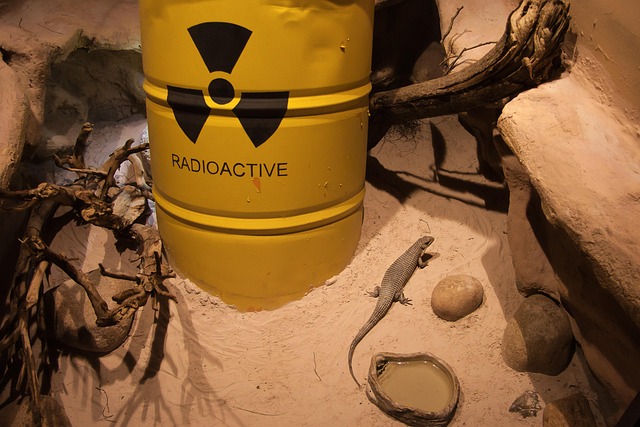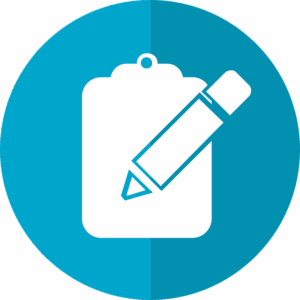Translation services for UK Environmental Impact Assessments (EIA) are crucial for international businesses aiming to comply with the UK's stringent environmental regulations. These services ensure accurate communication of complex EIA reports, proposals, and legislation, facilitating stakeholder engagement from diverse linguistic backgrounds. By bridging language gaps, they help avoid legal issues, secure approvals, and promote informed decision-making in sectors like construction, energy, and infrastructure. Professional translation agencies specializing in UK EIAs are vital for navigating intricate regulations, ensuring compliance, and avoiding project delays or complications. Digital innovations complement human expertise, enhancing efficiency and dynamic assessment processes.
Ensuring your environmental assessments align with stringent UK standards is crucial for project approval. This comprehensive guide explores the intricacies of UK environmental impact assessment (EIA) regulations, highlighting the pivotal role translation services play in facilitating compliance. From understanding key standards to overcoming common challenges, we provide a roadmap for accurate and standard-compliant translations. Discover best practices, real-world case studies, and future trends shaping the landscape of translation services within the UK’s demanding environmental sector.
- Understanding UK Environmental Impact Assessment Standards
- The Role of Translation Services in Ensuring Compliance
- Key Components of a Comprehensive Environmental Assessment
- Common Challenges in Meeting UK Regulations
- Best Practices for Accurate and Standard-Compliant Translations
- Case Studies: Successful Translations in the UK's Environmental Sector
- Future Trends and Technologies in Environmental Assessment Translations
Understanding UK Environmental Impact Assessment Standards

The UK has established stringent environmental impact assessment (EIA) standards to safeguard its natural resources and ensure sustainable development. These standards are designed to evaluate the potential effects of proposed projects on the environment, including air quality, water resources, biodiversity, and landscape preservation. Compliance with these regulations is essential for any project, especially those involving complex or large-scale developments.
Translation services play a vital role in ensuring that environmental assessments meet UK standards, particularly for international businesses navigating this regulatory framework. Accurate translations of assessment reports, project proposals, and relevant legislation help companies demonstrate their understanding of local environmental concerns. This is crucial for avoiding legal complications and securing the necessary approvals for projects, especially in sectors like construction, energy, and infrastructure.
The Role of Translation Services in Ensuring Compliance

In the realm of UK environmental assessments, translation services play a vital role in ensuring compliance with stringent legal standards. As regulations require precise and detailed documentation, professional translators are essential to bridge any language gaps. These experts not only translate documents but also ensure that technical terms and complex information are conveyed accurately, preserving the integrity of the assessment.
Translation services for UK Environmental Impact Assessments (EIAs) are particularly crucial due to their sensitivity and impact on decision-making processes. Accurate translations enable all stakeholders, including regulators, communities, and project developers, to fully understand the potential environmental implications. This fosters informed discussions and aids in navigating the complex landscape of UK environmental laws, ultimately contributing to more robust and compliant assessments.
Key Components of a Comprehensive Environmental Assessment

A comprehensive environmental assessment is a critical process that involves several key components to ensure adherence to UK standards. Firstly, it necessitates an in-depth understanding of the project’s potential environmental impacts, including ecological, social, and economic factors. This includes identifying and assessing any adverse effects on local habitats, biodiversity, air and water quality, and community well-being.
Additionally, a robust assessment should incorporate a detailed analysis of the project’s life cycle, considering its construction, operation, and eventual decommissioning phases. It should also involve engaging with relevant stakeholders, such as local communities, conservation groups, and government agencies, to gather diverse perspectives and ensure the assessment is holistic and well-informed. Translation services for UK Environmental Impact Assessments play a vital role in ensuring these processes are accessible and effective across languages, facilitating comprehensive involvement from all concerned parties.
Common Challenges in Meeting UK Regulations

Many organisations, especially those operating across international borders, face challenges when it comes to navigating and adhering to UK environmental regulations. One significant hurdle is understanding and interpreting the intricate nature of British legislation, which can vary from region to region. This complexity often requires specialised knowledge and expertise, especially in the field of environmental impact assessments (EIA). For businesses not based in the UK, seeking professional translation services for UK EIA becomes essential to ensure compliance.
Translation errors or misunderstandings can lead to significant delays and legal complications. The precision required in documenting potential ecological impacts, mitigation strategies, and public consultation processes demands accurate translations. Professional translation services provide a vital safety net, enabling organisations to present their assessments confidently, knowing they meet the stringent UK standards.
Best Practices for Accurate and Standard-Compliant Translations

When it comes to environmental impact assessments, accuracy and compliance with UK standards are paramount. One critical aspect often overlooked is the quality of translations involved in the process. Inaccurate or non-standard translations can introduce errors and misinterpretations, potentially leading to regulatory issues and project delays. Therefore, best practices should be rigorously followed when engaging translation services for UK Environmental Impact Assessments (EIA).
These best practices include ensuring that translators possess specialized knowledge in environmental science and regulations. They should also have proven experience with EIA documentation. Professional translation agencies should be employed, as they can offer consistency in tone and terminology across the entire assessment document. Additionally, peer review and quality assurance checks are essential to verify the accuracy and fluency of translations, ultimately ensuring compliance with UK standards.
Case Studies: Successful Translations in the UK's Environmental Sector

In the dynamic landscape of the UK’s environmental sector, effective communication is paramount. Translation services play a crucial role in ensuring that Environmental Impact Assessments (EIA) are accurately and coherently presented, catering to a diverse range of stakeholders from local communities to international investors. Successful case studies demonstrate the tangible benefits of professional translation in this domain.
For instance, a recent project involved translating an extensive EIA report for a renewable energy project from a European language into English. The challenge lay not only in accurately conveying technical terms but also in adapting the document’s tone and structure to align with UK regulations. Through meticulous research and close collaboration with environmental experts, our translation team delivered a polished, compliant report that met all stakeholder expectations. This success story underscores the importance of tailored translation services for UK Environmental Impact Assessments, fostering smoother processes and more informed decision-making in the sector.
Future Trends and Technologies in Environmental Assessment Translations

The future of environmental assessments is being shaped by innovative technologies and shifting trends. As the world becomes increasingly digital, translation services for UK Environmental Impact Assessments (EIA) are evolving to keep pace. Advanced machine translation tools now offer faster, more accurate options, but human expertise remains invaluable for complex assessments requiring nuanced understanding.
These advancements promise greater accessibility and efficiency in navigating the UK’s stringent environmental regulations. Real-time data analysis, artificial intelligence, and collaborative cloud platforms are also on the horizon, enabling more dynamic and comprehensive assessment processes. Staying abreast of these developments is crucial for professionals ensuring their EIA translations meet the evolving standards and expectations of the UK regulatory landscape.
In conclusion, ensuring environmental assessments align with UK standards is paramount for any organisation operating within this jurisdiction. By understanding the stringent regulations and leveraging translation services that specialise in environmental compliance, companies can effectively navigate the process. This article has outlined key aspects, from standard comprehension to future technologies, providing a roadmap for successful translations. Adopting best practices and learning from case studies will further strengthen organisations’ ability to meet these high standards, ultimately contributing to more sustainable development across various sectors. Translation services play a vital role in facilitating this, ensuring accurate communication of environmental impacts throughout the UK’s complex regulatory landscape.
